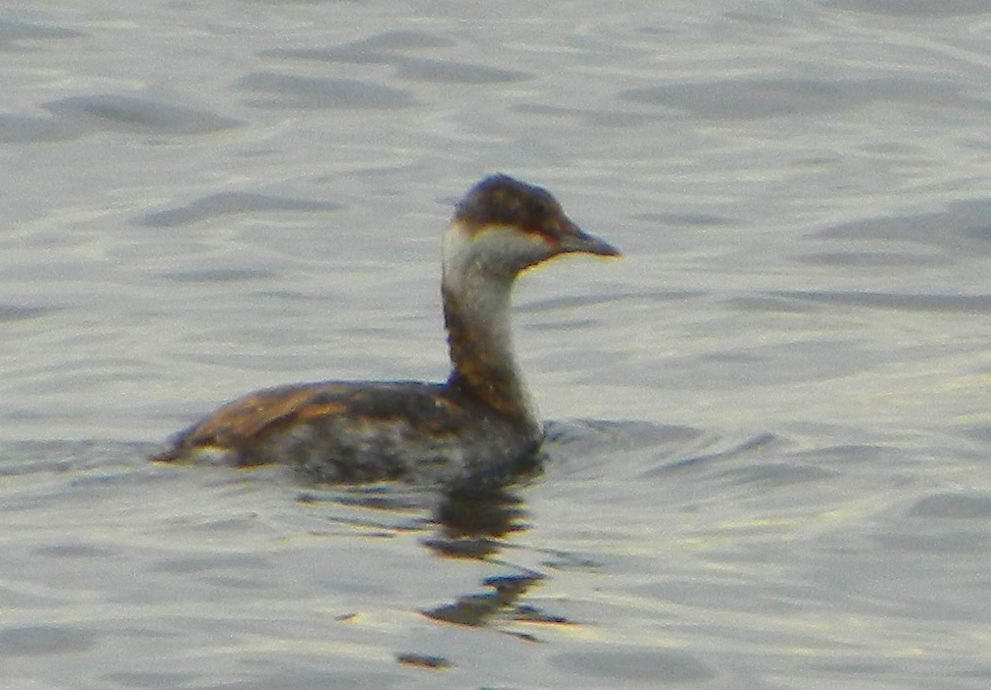These photos were taken by G. Fletcher off the shore of Taylor Beach on Oct 10/14 Unfortunately I didn’t have a telephoto along!
The tentative identification is the Horned grebe.
The following is quoted from From the Species at Risk Registry
“Horned Grebe: Scientific Name: Podiceps auritus
Taxonomy Group: Birds
Range: Yukon, Northwest Territories, Nunavut, British Columbia, Alberta, Saskatchewan, Manitoba, Ontario
Last COSEWIC Assessment: April 2009
Last COSEWIC Designation: Special Concern
SARA Status: No schedule, No Status
Threats NOte Bolded sentence:
The factors limiting Horned Grebe populations in Canada are not known, but several possible causes for the decline have been identified, including degradation of wetland breeding habitat and droughts. Permanent loss of wetlands to agriculture and development threaten Horned Grebe populations. Temporary loss of wetlands during droughts can also negatively impact Horned Grebe populations, and the length and frequency of droughts in the Prairies is expected to increase in the future, due to climate change. Eutrophication, i.e., the alteration of an aquatic environment linked to a significant input of nutrients that increases the production of algae and aquatic plants, as well as degradation of nesting sites from the accumulation of fertilizers used in agriculture or other contaminants could also threaten populations. In the Prairies, the major expansion of some predators, including Common Ravens, Black-billed Magpies and racoons, could be a factor causing a decline in the Western population. Type E botulism has been reported in the Great Lakes since the late 1990s and may be an important source of mortality for both resident and migrating waterbirds. Oil spills on their wintering grounds can also threaten Horned Grebe populations. At sea, these birds are particularly vulnerable, since they spend most of their time on the water. Competition with Pied-billed Grebes for breeding habitat could be a limiting factor for the Western population. Similarly, Red-necked Grebes may exclude Horned Grebes from nesting on some ponds. Finally, Horned Grebes become entangled and drown in nets in some commercial fishing areas. It is estimated that 3000 grebes and loons are netted annually by fishers on the southern part of Lake Winnipegosis in Manitoba. On the Great Lakes, birds are killed annually in fishing nets during both spring and fall migrations.







